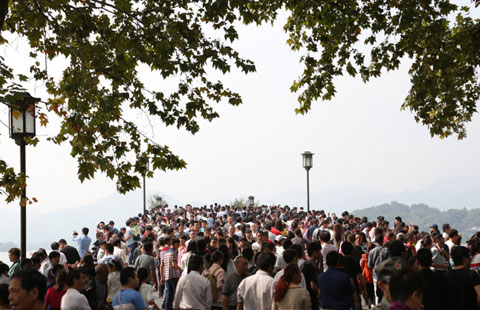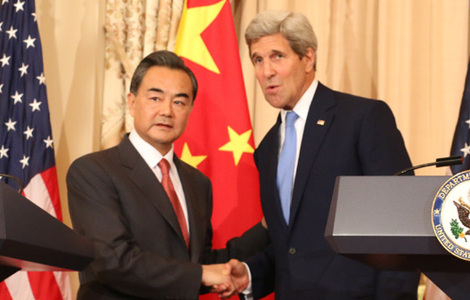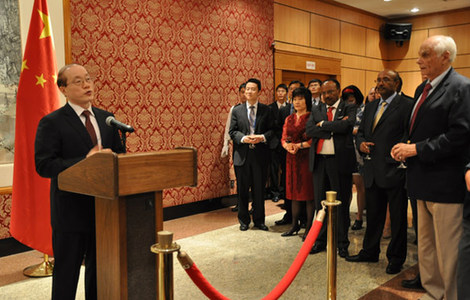Protests harm HK economy
Updated: 2014-10-03 20:55
(Xinhua)
|
||||||||
HONGKONG - Calls grew on Friday for Hong Kong's "free and sound" investment climate to be protected and illegal Occupy Central gatherings ended.
Occupy Central protests in Hong Kong's busiest areas since Sept. 28 have led to serious traffic disruption, temporary closure of schools and banks, and a slump in the Hang Seng Index. Protest organizers want central authorities to change the decision on Hong Kong's electoral system.
The plummeting stock market reflects international investors' worries about the situation, said Wang Jun of the China Center for International Economic Exchanges, adding that besides a fine tradition of the rule of law, the region attracts investment through a sound and fair market order.
"Investor confidence will be affected if the illegal gatherings continue," he said, adding that Hong Kong's international credit ratings could also suffer.
It is estimated that Occupy Central will cost Hong Kong 40 billion HK dollars (about 5.15 billion U.S. dollars). Central is the financial hub's core area. Further capital outflow is inevitable and Hong Kong's status will suffer, said Ding Zhijie of Beijing's University of International Business and Economics. .
Thirty-six branches of 19 banks in Hong Kong have been closed since the protest started. Some financial institutions have moved staff to other parts of the city.
Oct. 1, the first day of the National Day holiday, saw 30,000 fewer mainland visitors than last year. Over the seven days of Golden Week, about 20 to 30 percent fewer mainland tourists are expected than last year, as the protest hurts retail sales. Most mainland tourists go to Hong Kong to shop.
Golden Week is usually peak tourist season in Hong Kong, but this year visitor numbers are plummeting, said Wei Xiaoan of the World Tourism Cities Federation.
"Transportation, lodging, dining and shopping are all inconvenient. Personal safety is not guaranteed. Who wants to go there?"
Wei hopes Hong Kong's stability will be restored as soon as possible, and its image as an international tourist destination will not be ruined.
More than 200 Hong Kong hotels will probably lose nearly 100 million HK dollars a day, according to the Federation of Hong Kong Hotel Owners.
Hong Kong's status as international financial center cannot be sustained without mainland support, said Bai Ming of the Chinese Academy of International Trade and Economic Cooperation at the Ministry of Commerce.
Bai cited the upcoming Shanghai-Hong Kong stock trading linkage, which allows investors to trade shares on both exchanges, as an example of the central government's pursuit of an internationalized yuan and development of Hong Kong as an offshore yuan business center.
Financial cooperation between the mainland and Hong Kong will not be affected by "individual events," Bai said.
Liu Xuezhi, a financial researcher at the Bank of Communications, believes the central government has been consistent with regard to Hong Kong's lasting prosperity and stability, a solid foundation to for investor confidence.
"A stable environment is a precondition for Hong Kong's prosperity," he said.
"If Occupy Central organizers stubbornly continue, Hong Kong will miss great development opportunities and the bill will ultimately be paid by ordinary people," he said.
Most Viewed
Editor's Picks

|

|

|

|

|

|
Today's Top News
Xiamen dancers dazzle Ft Meade
'One Country, Two Systems' vital
China, US voice commitment to ties
US visas hinder talent search: expert
IMF calls for more global growth
GM to invest $14bn in China
HK official to meet with Occupy Central students
Evernote announces new products
US Weekly

|

|















